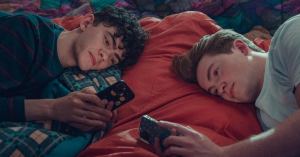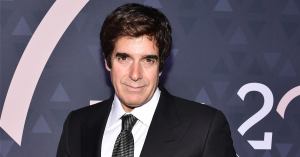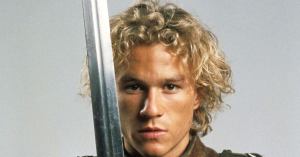In the post-Weinstein era, more and more women are finding the courage to come forward and share their stories of sexual harassment.
Speaking exclusively to Variety, 20 women in Hollywood, ranging from casting directors to writers to producers, told of their own experiences of sexual harassment in the work place, incidents that have altered the course of their careers and changed how they operate in the industry.
Videos by PopCulture.com
Stacy Sher – producer (‘The Hateful Eight’)
Sher’s first encounter with sexual harassment in Hollywood happened when she was a young executive attending one of her very first agency meetings. She was expecting and hoping that the agent would tell her that he had heard that she was smart and hardworking, but instead he told her something entirely different.
“Well, I heard you were….pretty f—able looking,” the agent told her.
“I guess you have pretty good sources,” she responded, despite being completely rattled by the agent’s statement.
Sher said that the experience left her heartbroken and it opened her eyes to the fact of how fragile a woman’s career is in Hollywood.
Sherri Cooper-Landsman – TV writer/executive producer (‘Eligible’)
At the age of 29, Sherri Cooper-Landsman learned that “in order to succeed I couldn’t ‘be a girl.’”
Cooper-Landsman explained that, while she has encountered sexual harassment multiple times over the course of her career, there is one instance that stands out. After being hired for her first TV staff writing job, she explained how her boss went from liking her and praising her work to treating her terribly after learning she was engaged. Cooper-Landsman details how she was shut out of the writer’s room. Eventually, she learned the truth of why she was hired.
“Everyone knows he hired you because he had a crush on you, and he got upset when he found out you were engaged. He set you up for failure,” a consulting producer told her after she wasn’t asked to return.
Nancy Klopper – casting director
While casting for a film for an award-winning director, Klopper explained how he would leave the adjoining bathroom door open when he used the restroom. She never commented on the behavior, which she calls “passive aggressive,” but the director’s behavior grew more inappropriate in later years.
After receiving a call from the unnamed man years later expressing interest in Klopper casting his next film, she showed up to his apartment. She was greeted by the director dressed in nothing more than a robe. He asked her to “Let me know if my c–k is hanging out,” before sitting her down and reading his script, which included very graphic sex scenes.
“I was frozen. It felt like an assault using words instead of actions.”
Rina Mimoun – writer/executive producer (‘Mistresses’)
During one of her first jobs as a writer’s assistant, Rina Mimoun detailed how, in a writer’s room with “all white guys” and one female, rape became a joke.
“The showrunner told a ‘hilarious’ story about how he was on a date with a girl who passed out in his bed and he decided to have sex with her anyway, despite the fact that she was unconscious,” she said.
She chose to laugh along at the time because, although she recognized it as rape, she was starting out in her career. She said that she regrets her decision.
Linda Litcher – entertainment attorney, partner, Lichter Grossman Nichols Adler & Feldman
Litcher shared in detail how she was working as a small entertainment law firm, a woman came to her to seek advice about a senior partner who was harassing her. The woman’s harasser saw her talking to Litcher and demanded she tell him what she said. He then attempted to get Litcher fired and convinced other partners to cut her pay.
“There were no laws to protect me and when I asked a famous attorney’s firm to represent me, they said I was a “bad plaintiff” and a jury would not be sympathetic because I was too ‘successful.’”
Nina Lederman – EVP scripted programming, All3MediaAmerica
As a gay woman, Lederman says that men have given their opinion regarding her sexuality.
In one instance, Lederman claimed that a male television director tried to convince her that she hadn’t yet found the right man and that he constantly proposed that he was the right man to “cure” her of her sexuality.
Sharon Bordas – V.P. scripted series development, Lifetime
Bordas explained the disturbing behavior of a director on a movie set she once worked on. She claims that the male director constantly threatened to physically assault and rape her and another producer. She alleged that he locked the female producer in a jail cell, which was part of the set, to get what he wanted.
“I spent so much time on that set protecting women from him, just to get through the movie.”
Joely Fisher – actress (‘Til’ Death’)
“You have to be the person that everyone wants to have at the party. And so you say nothing. You laugh and go along with a man who pulls his penis out. Until you don’t,” Joely Fisher said, claiming that her three daughters are the reason she chose to come forward with her story.
According to Fisher, she once worked on a show with a director who would expose himself. It was a habit that, at the time, she laughed along with. She explained that she never felt threatened, but realized that the director’s actions were wrong. She was afraid of what would happen to her career if she ever came forward or was the one who chose to not laugh.
Leslie Castanuela Barnes – writer, former motion picture agent
As a motion picture agent, Barnes claimed that many of her clients demanded that in order for her to represent them, there had to be a sexual component to their relationship. She even detailed an incident where one of her clients forcefully kissed her and told her that he had been waiting to do that.
“I felt like my integrity and character were being challenged.”
Katherine Fugate – writer-producer (‘Army Wives’)
As an assistant at a production agency, Katherine Fugate detailed her experience with the head of the company who would hold pitch/notes meetings at house, during which he’d typically be naked.
“Sometimes he would be naked, getting a massage in the middle of the room, conducting the meeting from the massage table,” she explained.
Caroline Aaron – actress (‘The Marvelous Mrs. Maisel’)
Actress Caroline Aaron claimed that during one set of auditions for a TV show, the final callback wasn’t for a script read or even to act, but rather to walk with her back to the camera so that the size of her behind could be seen.
“When I was walking away from the camera I was crying, but they couldn’t see my face. They weren’t interested in seeing my face. Just my ass. And I didn’t get the job,” she said.
Allyn Stewart – film producer (‘Sully’)
“I had to shut down my femininity, softness, and vulnerability, which are vital components of your creativity,” Allyn Stewart said, stating that doing so was the only way she could protect herself from being sexually harassed in the workplace, something that she had experienced multiple times while in her 20s. Her lack of femininity and softness led to men labeling her as “tough.”
“I didn’t want to fend off men, I wanted to be appreciated as an equal, taken seriously, and do my work.”
Gabrielle Carteris – actress; president, SAG-AFTRA
“This is not just about men, it’s about people in power,” Carteris explained. She went on to detail an experience she had early on in her career. Meeting with a female agent and hoping she’d assign her, Carteris was dealt the news that “‘This business is all about t-ts and a–, and you have neither.’”
Melissa Rosenberg – writer (‘Twilight,’ ‘Jessica Jones’)
Melissa Rosenberg’s first experience with sexual harassment occurred when she was just starting in the business, and it’s an incident that she carries with her today.
Working as an assistant to a TV producer, Rosenberg said that an executive at the studio was “touchy-feely,” stating that he groped and grabbed. His assistant decided to sue him for sexual harassment and asked Rosenberg to back her. After being told by her female boss that doing so would mean she’d never work in the industry, Rosenberg chose not to back the other woman, who eventually was forced to move back home and lost her dream of furthering her career.
“For all these years I’ve lived with shame of not having backed a sister. And yet I know with absolute certainty that if I had, I would never have worked again. So I try to make up for that now — to prevent that and support other women as much as I can.”
KJ Steinberg – co-executive producer (‘This Is Us’)
KJ Steinberg calls herself “one of the lucky ones” despite having experienced multiple occasions of sexual harassment.
She explained how a CEO once told her, after shaking hands with her parents, that he’d like to take her “into the men’s room, do some blow and f— around.”
Another incident involved the president of a network telling her that she was “hot for a writer,” which later turned into an inappropriate email he sent her telling her that he was “still shaking from your sexy hair.” Steinberg’s show never aired on that network, and she says that incidents “made deep grooves in my young brain, informing how defensively I’d carry myself in the subsequent moments of my career.”
Nell Scovell – TV writer (‘Sabrina the Teenage Witch’); co-author of ‘Lean In’
Scovell detailed the experience she with a boss who brushed off her concerns regarding a fellow writer. Scovell claimed that the writer was aggressive, violent, physical and made sexual comments, things that made her uncomfortable and feel as though she couldn’t work in the same room as him.
Her boss did little more than tell her “You can’t change someone’s behavior; you can only change your reaction to that behavior.”
Terry Curtin – veteran marketing executive
Sexual harassment made her fear that she’d lose her job early on in her career, Terry Curtin claimed. Working as an assistant, her boss’s boss called her into his office to tell her that she needed to cover herself more and stop wearing skirts because it aroused him. The blame was placed on Curtin and it’s something she’s carried with her since.
“I began dressing really conservatively after that, and long after I no longer worked for that company or that boss, I remained self-conscious about outfit choices in the workplace.”
Margaret Nagle – screenwriter (‘The Good Place’)
She had just written a script about the brilliant Eleanor Roosevelt when Margaret Nagle encountered sexual harassment. A story detailing Roosevelt’s journey falling in love with a woman wasn’t enough for the men she pitched it to, who told Nagle that Roosevelt wasn’t “f—able.” They went on to ask if they could at least make her love interest hot.
“Women have learned to deal with sexual harassment like it’s a drive-by shooting: unless a bullet hits you, you just keep on running.”
Erin Simon – writer/former development executive
“I can’t stop thinking about tasting you,” Erin Simon revealed a former boss once said to her.
Working on a movie in production, Simon befriended a man on set whom her boss had told her to stay away from. It infuriated the male boss, who demanded that she should have to do whatever she was doing with her friend with him, too.
The harassment didn’t end after the movie capped off filming. Simon went on to detail the chilling story of what occurred once they were back in Los Angeles. Delivering a script to her boss, he wouldn’t allow her to leave until she kissed him.
“He literally chased me around his dining room. I was very afraid of what was going to happen. I even got splinters in my fingers from grabbing the edge of the wooden table,” she said.
Later on, he would shut Simon out and talk badly of her to others in the industry.
Maria Elena Rodriguez – TV writer (‘Queen Sugar’), animation producer
“I started carrying a sharp pair of scissors on a ribbon around my neck,” Rodriguez explained her mode of self-defense while on set of a shoot.
Just coming out of film school, Rodriguez began working on low-budget shoots, which is where she first encountered sexual harassment in the industry. While gathering gear and supplies from the trucks, she said that an electrician would corner her and expose himself.
She said that everyone knew about it, but nobody did anything to stop it, leading her to carry a pair of scissors around with her. “That’s how I got through that shoot – brandishing those scissors anytime he came around.”





